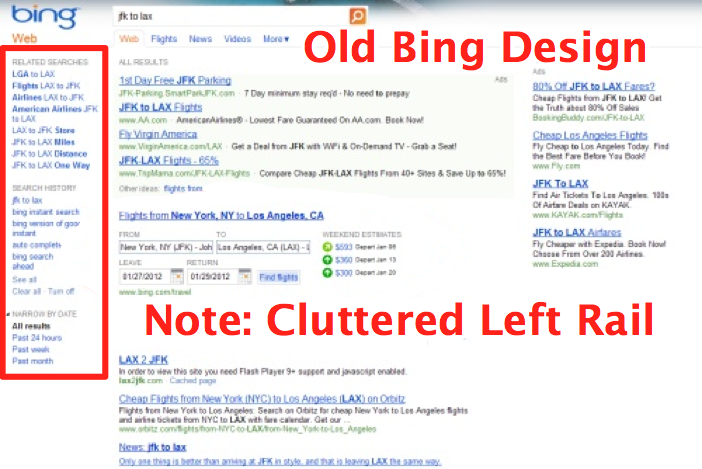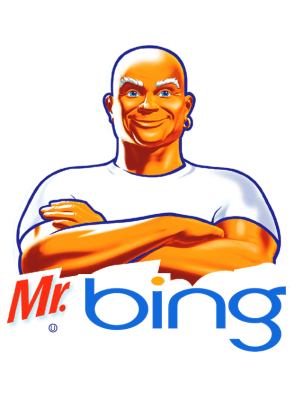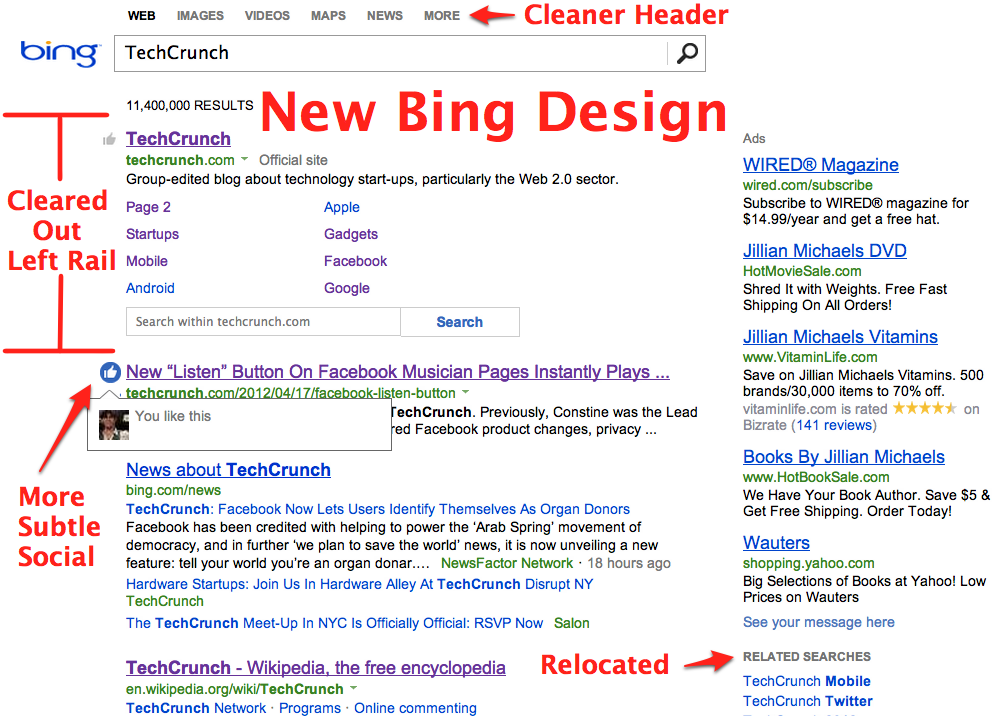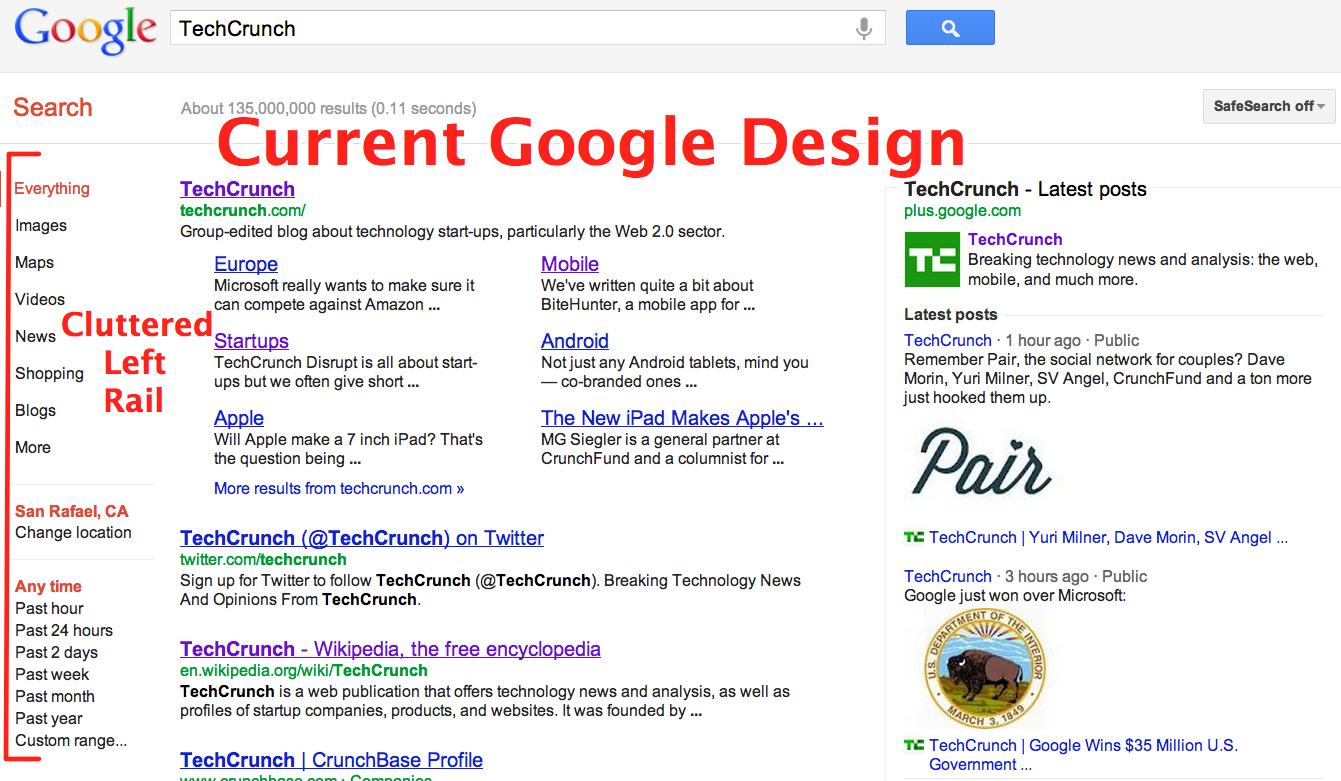While Google keeps cramming its search results pages full of tools and social content, today Bing confirmed with me the full roll out a redesigned search results page that completely clears the left sidebar, and replaces the tabbed header with a cleaner set of links. Bing’s Facebook integration is also more subtle now, instead of plastering names and faces beneath Liked results.
This more relaxing, dare I say zen, design gives Google a more claustrophobic and exhausting feel by comparison. Microsoft seems to have realized that if it can’t match Google’s algorithmic prowess, it could win with sleek design that doesn’t bombard you with a thousand options.
Bing has been testing several of these changes for a few months. Here are the rest of details on redesign that’s supposed to reach all US users [Update: not the whole world] by the end of Tuesday if it hasn’t already:
- Related Searches have been shifted from the now-gone left rail to beneath the ads in the right rail
- A ‘thumbs up’ icon now indicates that friends have Liked a search result, and you can see who did by hovering over the icon
- The “narrow by time range” filter formerly in the left rail now only appears if you select the “News” search type from the “More” options
- Update 8am PST 5/2/12: There’s also now more space between lines to aid readability, pages load faster, and the additional whitespace may host future changes
Personally, I dig minimalist product design that keeps things focused. If there’s a tool or option I only need sometimes, I’m okay spending an extra click to reveal it. The desktop Internet is brain-frying enough with so many applications and windows and tabs displayed at once. That’s why it seems more people are championing streamlined apps like Path, ad-blockers, and services that strip clutter out of news articles.

When faced with a much more established competitor, your only move is to differentiate or die. For a while that meant Bing getting cozy with Facebook and Twitter. It appeared to be working as it surpassed Yahoo in search query volume in January, though the product was still bleeding billions of dollars. But then Google Search went social, sparking controversy and solidifying the public as uncomfortable with personalized results.
In fact, Google’s disastrous Search Plus Your World created an opportunity for a clever Bing pivot. Microsoft heard that people were asking for a return to the simple results pages of yesteryear. Today that’s what we got. Now we’ll see if less really is more — more market share for Bing and less for Google, that is.


